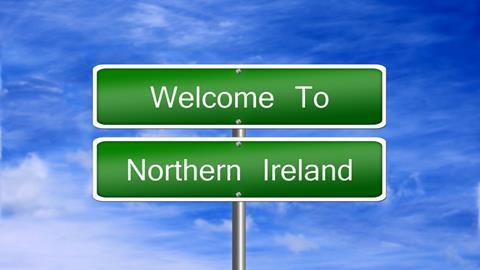The RHA is calling on Northern Ireland secretary Hilary Benn MP to work with the haulage industry to simplify post-Brexit border processes between NI and Great Britain.
The call comes in a letter to Benn this week in which the RHA expresses deep concerns over the significant operational costs and administrative burdens created by the GB-NI border checks.
It warns these could get even more onerous once additional border restrictions on the movement of freight kick in next March under the Windsor Framework agreement, the Brexit deal that sets trading rules between GB and NI.
The letter sets out RHA’s key recommendations to the secretary of state for Northern Ireland on moving goods between GB and NI.
These include simplifying the processes for just-in-time goods and ensuring industry is involved in any reforms the government plans to make on GB-NI trade.
The RHA’s letter follows the government’s recent announcement that it would delay new arrangements agreed under the Windsor Framework for parcel and freight movements between GB and NI, which saw the deadline delayed from 30 September to 31 March 2025.
The decision came as businesses warned that there was not enough time to prepare for the changes.
Richard Smith, RHA MD, said: “We are committed to working alongside you to help to produce durable solutions which work for all to enhance Northern Ireland’s economy - whilst maintaining supply chains and minimising the impact on business and consumers.
“The role of hauliers is critical to successful trade between Great Britain and Northern Ireland and a robust and efficient GB-NI supply chain is crucial to the UK economy.”
He said he noted the secretary of state’s recent comments that there will be “minimal disruption with a combination of mitigations, derogations and the operation of the Windsor Framework in good faith.”
But he stressed that this hasn’t been the industry’s experience to date and there are real concerns about the steps businesses must go through to send certain goods from GB to NI.
Smith added: “We are concerned that this will worsen with the changes due in March 2025,” and asked the Northern Ireland secretary for a meeting to discuss the issues and the RHA’s recommendations.
Meanwhile the government has confirmed that it “will not proceed with the introduction of ‘not for EU’ labelling in Great Britain on a mandatory basis on 1 October 2024.
“At the same time, we will develop legislation to apply ‘not for EU’ labelling in Great Britain in the future in a targeted way, if there is evidence of need.”
The RHA’s recommendations to the Northern Ireland secretary include:
- Strengthening stakeholder engagement to include road haulage operators in discussions on GB-NI trade, including any further reform to the Windsor Framework.
- Providing exemptions for just-in-time (JIT) goods, including a new declaration category.
- Eliminating the £2m threshold for manufacturers and providing an exemption or easement for businesses who guarantee non-EU destinations for consignments.
- As part of the new government’s wider reset of EU relations, change the default position from at risk to not at risk and require businesses to declare if their goods should be subject to customs entries.
- Remove the requirement for United Kingdom Internal Market Scheme (UKIMS) and instead require the affected at risk business to create Simplified Frontier Declarations. For all other goods, a simple declaration of what is on the lorry should suffice (as has been happening for parcel movements with fast parcel operators to date).
- Remove all the border declarations and move to a simplified business reporting model that uses either an Inward Processing Customs model or takes data from the intrastats already being submitted for customs exposure. Consumer movements with a delivery address in NI should all be considered free of any customs obligations on behalf of sender or receiver. This would level the playing field again across the industry and remove the need for the Trader Support Service (TSS).

















